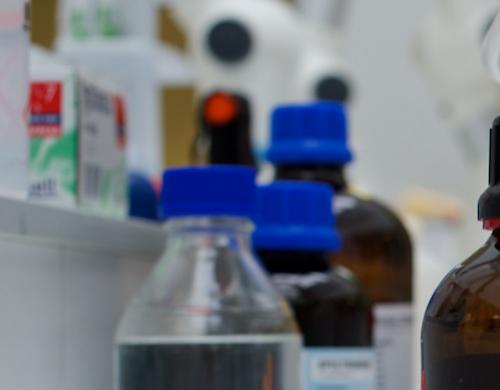Market Surveillance Studies (MSS)
Suspected Illegal Products
Related Links

 Avenue de l'Europe
Avenue de l'Europe
This activity involves the General European OMCL Network only.

Market Surveillance Studies (MSS) are carried out on commercialised medicines, particularly on those having a national marketing authorisation. They look at different types of finished products for a given active substance, as well as herbal drugs, medical devices and any proposals submitted by the OMCLs of the GEON.
Products are tested according to a common protocol and on the basis of national sampling procedures.
To ensure that the same types of medicines are of comparable quality in the different member states, these studies are multilateral. Several are organised yearly.
Where a need is identified, the results of these studies could support revision of the relevant European Pharmacopoeia monographs and/or general chapters and methods.
Since 1999, more than 60 MSSs have been organised within the Network and several thousand medicinal product samples have been tested in order to control the quality of medicines available on the European market. A position paper adopted in May 2023, highlights the benefits of MSS.
Pregabalin hard capsules (MSS062)
Thirteen OMCLs from twelve European countries participated in this study, which focused on evaluating key parameters of pregabalin hard capsules, including identification, assay, related substances, and content uniformity. The analysis of 247 capsule samples collected from the European market demonstrated satisfactory assay results, as well as compliant homogeneity in accordance with Ph. Eur. 2.9.40. The capsules exhibited a high level of purity, with total impurities not exceeding 0.7%.
Rosuvastatin APIs and tablets (MSS063)
Fifteen OMCLs from fifteen European countries participated in the study, which focused on the analysis of key parameters of rosuvastatin active substances (APIs) and generic rosuvastatin tablets, in order to assess their compliance with the corresponding Ph. Eur. monographs and authorized specifications. In total, 75 API samples and 279 finished product samples were tested, with 99% found compliant with specifications.
Medical face masks (MSS064)
Four laboratories from four European countries participated in a market surveillance study on masks for medical use as defined by EN 14683 and falling within the scope of the EU legal framework on medical devices – Regulation (EU) 2017/745 (MDR).
This study, launched in 2024, was both a retrospective and a prospective exercise, covering the analysis of masks conducted between March 2020 and June 2024. A total of 344 samples/batches, representing over 10,700 individual mask units from 113 different manufacturers were analysed for bacterial filtration efficacy, microbial cleanliness, breathability and splash resistance.The findings revealed that 47% of the analysed samples did not comply with specifications for at least one of the four tested parameters, with 10% showing non-compliance with two or more parameters.
Alendronic acid (MSS065)
Fifteen OMCLs from 15 European countries participated in this study assessing the quality of alendronic acid tablets on the European market, with a focus on disintegration time, considered critical for formulations prone to excessively rapid disintegration.
Although Ph. Eur. 2.9.1 does not specify a minimum disintegration time, about 40% of the samples analysed included a requirement set by the MAH (30 s to 1 min). Only one sample failed to meet its own limit, but more could have been non compliant if such minimum disintegration time had been applied more broadly. These findings will be shared within the respective European Pharmacopoeia group, and potential actions will be further discussed there.
Lenalidomide API and capsules (MSS066)
This study was launched in 2025. The protocols were established on the basis of the corresponding Ph. Eur. monographs, which are currently under elaboration. Nine OMCLs are participating in this study. The results are expected to become available during 2026.